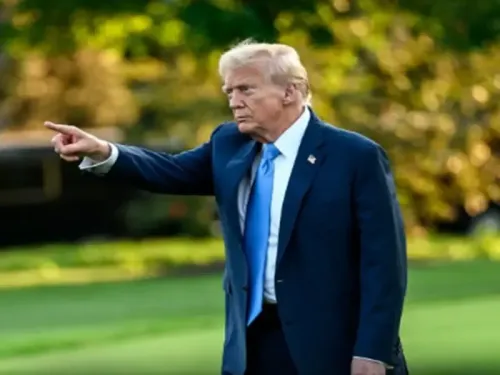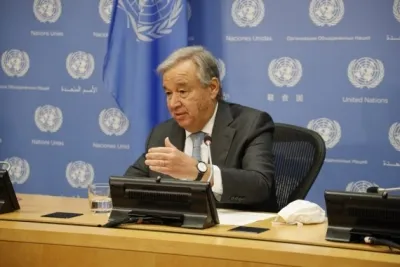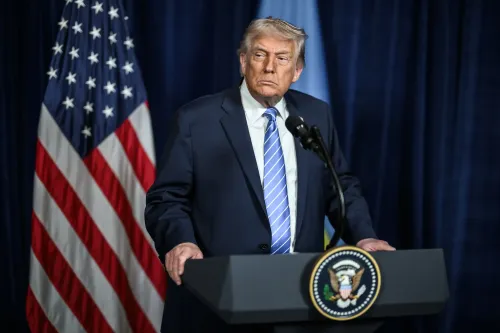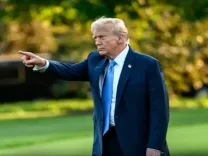What Are the African Union’s Concerns About the US Travel Ban?
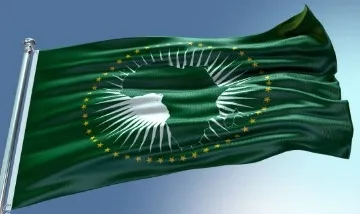
Synopsis
Key Takeaways
- African Union voices concerns over US travel restrictions.
- Travel bans could harm international relations.
- US cites national security as the reason for the ban.
- AU urges for constructive dialogue with affected nations.
- Exemptions exist for certain visa holders.
Addis Ababa, June 5 (NationPress) The African Union (AU) has raised alarms regarding the potential adverse effects of the recently implemented travel bans by the United States, which target individuals from multiple nations, including several African countries.
The African Union Commission (AUC) issued a statement on Thursday, recognizing the inherent right of nations to safeguard their borders and ensure the safety of their citizens. Nonetheless, it urged the United States to utilize this right in a manner that is equitable, evidence-driven, and reflective of the enduring partnership between the US and Africa.
The AUC expressed apprehension about the possible detrimental consequences of these restrictions on interpersonal connections, educational exchanges, business engagements, and the broader diplomatic relations that have been carefully cultivated over decades, according to a report by Xinhua news agency.
Furthermore, the AUC implored the US administration to consider adopting a more consultative approach and to engage in constructive dialogue with the affected nations.
The travel ban proclamation was signed by US President Donald Trump on Wednesday evening, citing national security concerns.
According to a White House announcement, the proclamation will impose a full ban on the entry of nationals from 12 countries: Afghanistan, Chad, the Republic of the Congo, Equatorial Guinea, Eritrea, Haiti, Iran, Libya, Myanmar, Somalia, Sudan, and Yemen.
These nations were deemed to have deficiencies in screening and vetting and were identified as posing a very high risk to the United States, the release stated.
Additionally, the proclamation will impose partial restrictions on nationals from seven countries: Burundi, Cuba, Laos, Sierra Leone, Togo, Turkmenistan, and Venezuela.
The travel restrictions are set to take effect at 12:01 a.m. next Monday.
The White House stated, "The restrictions and limitations imposed by the Proclamation are essential to ensure cooperation from foreign governments, enforce our immigration laws, and achieve other critical foreign policy, national security, and counterterrorism goals."
Exemptions from the ban will include lawful permanent residents, existing visa holders, specific visa categories, and individuals whose entry supports US national interests.
During his first term, Trump had previously announced a ban on travelers from seven countries, a policy that underwent multiple revisions before being upheld by the Supreme Court in 2018. Former President Joe Biden reversed this ban in 2021.


